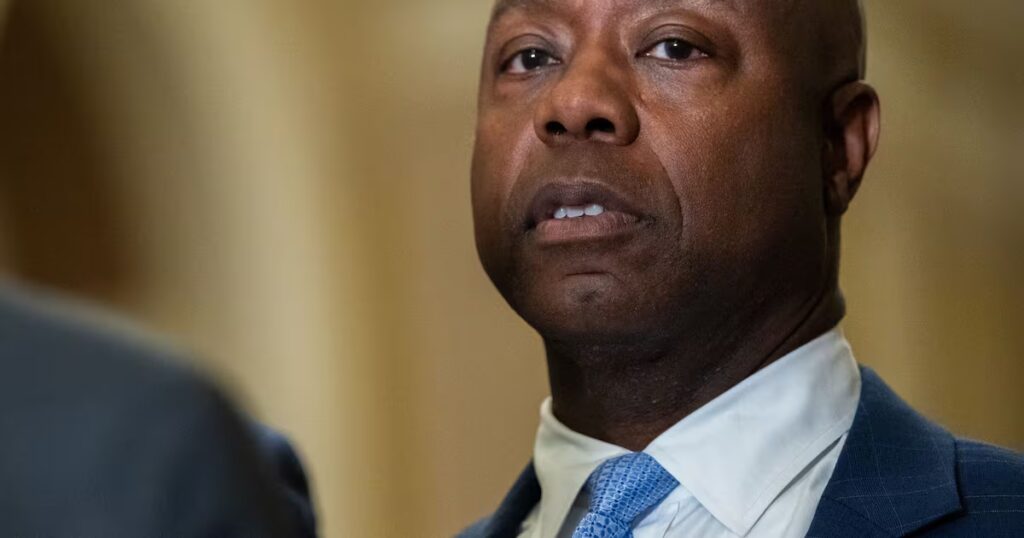- The Clarity Act will be delayed until next year, Sen. Tim Scott said.
- The setback is another blow for Scott, who initially predicted the bill would be signed into law by August.
- The Clarity Act aims to establish a comprehensive regulatory framework for crypto assets.
The Clarity Act won’t be signed by the U.S. Senate this year – and it’s all the Democrats’ fault.
Tim Scott, Republican senator from South Carolina and chairman of the Senate Banking Committee, made this argument in an interview with Fox Business Wednesday.
“Democrats have procrastinated and procrastinated and procrastinated because they don’t want President Trump to make America the crypto capital of the world,” Scott said. He added that he hopes the much-anticipated crypto market structure bill can be put to the Senate for a vote early next year.
Scott was instrumental in making crypto legislation a key priority during US President Donald Trump’s second term.
The setback is another blow for the Republican senator, who initially predicted the bill would be signed into law by August, and who recently pledged to pass it by September 30.
The Clarity Act aims to establish a regulatory framework for crypto by defining asset classes and assigning them to regulatory agencies.
Its main objectives are to close regulatory gaps, define rules for market participants and provide clear pathways for the development and trading of cryptocurrencies.
This follows the Genius Act, which Trump signed into law in July. Unlike the Genius Act, which limited its scope to stable cryptocurrencies, the Clarity Act has a broader scope.
It therefore proves more difficult for legislators to agree on its content.
Turbulent legislation
Although the crypto market structure bill has received support from both Republicans and Democrats, lawmakers from both parties differ on what it will look like.
In October, Senate Democrats proposed classifying every decentralized finance protocol as a “digital asset intermediary,” requiring them to verify customer identities and adhere to anti-money laundering regulations.
In response, the crypto industry, backed by many Republican lawmakers, widely criticized the proposal, saying it would effectively kill DeFi in the United States.
Some Democrats also oppose attempts to regulate crypto assets because it would legitimize the president’s crypto plans.
These include Trump memecoin, DeFi protocol World Liberty Financial, and American Bitcoin, an industrial-scale mining company recently co-founded by Eric and Donald Trump Jr.
“These bills would make Congress complicit in Trump’s unprecedented crypto scam – a scam that enriched himself, his family, and the inside billionaires in his Cabinet,” Democratic Rep. Maxine Waters wrote in a statement.
Meanwhile, the U.S. government was mired in a record 43-day shutdown as Congress failed to pass an appropriations bill for fiscal year 2026.
“For the American people”
Despite setbacks, the bill is moving forward, according to a White House official.
“From our office, I’ve noticed virtually no difference,” Patrick Witt, executive director of President Donald Trump’s Council of Digital Asset Advisors, said at Ripple’s Swell conference in New York on November 5.
Scott, too, remains confident the bill will eventually pass. “This is not just for President Trump, this is for the American people,” he said.
Tim Craig is DL News’ DeFi correspondent based in Edinburgh. Contact us with advice at tim@dlnews.com.




